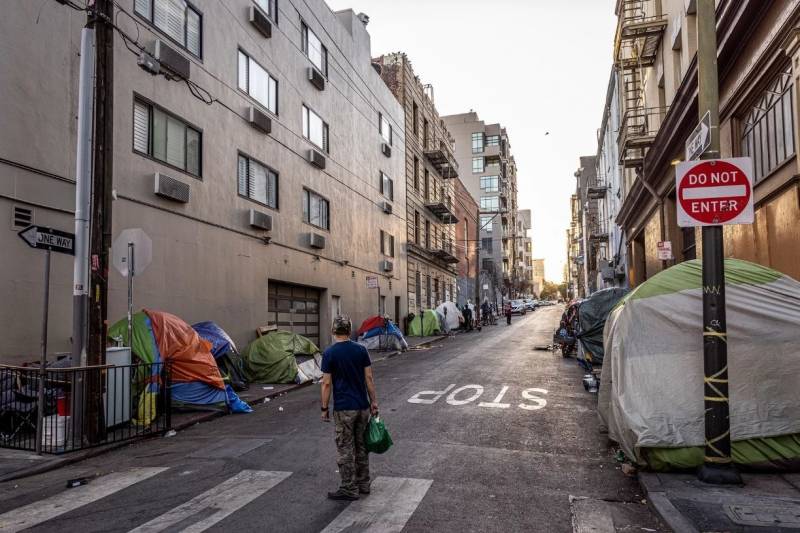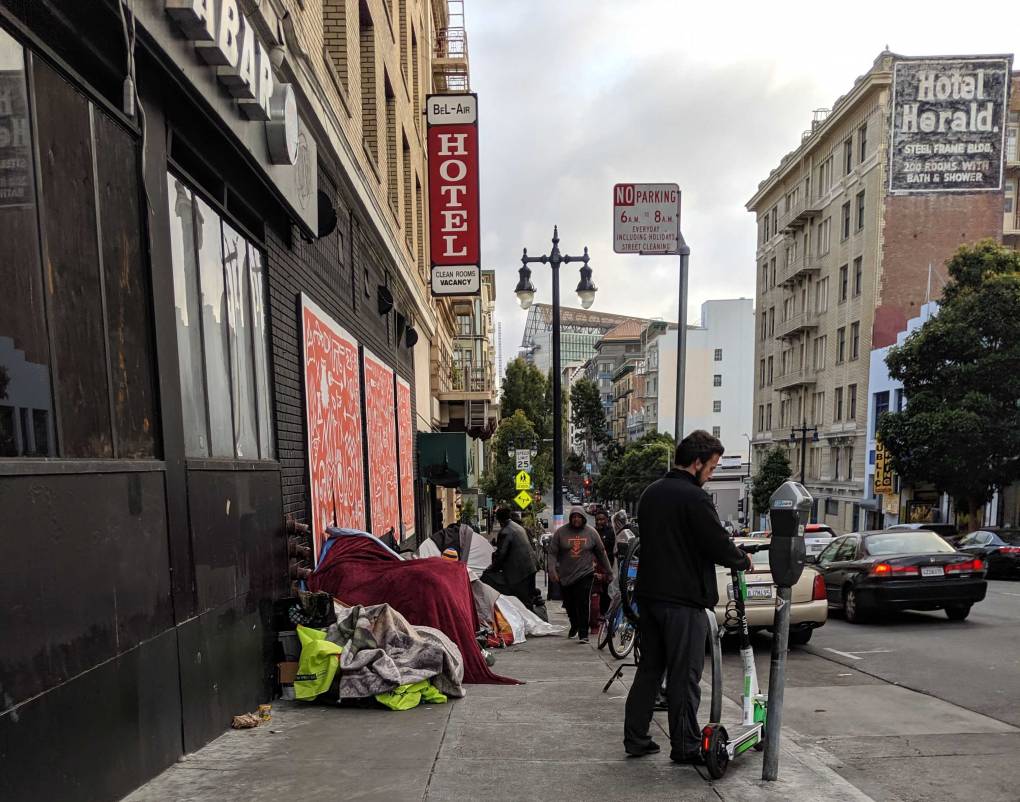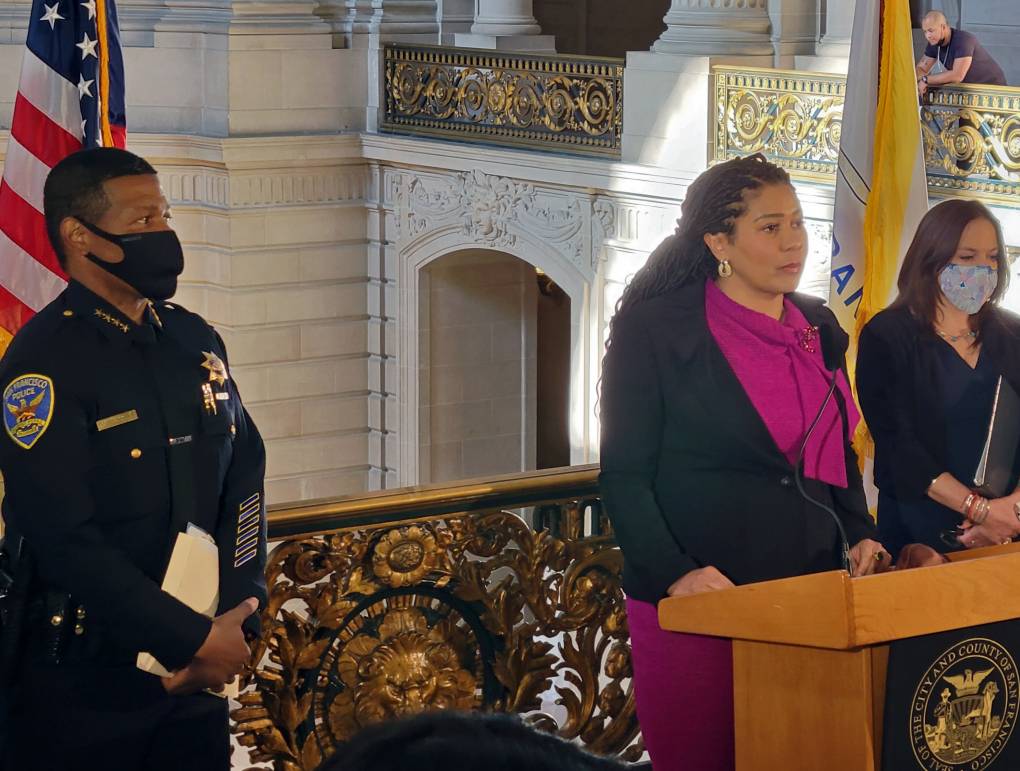“I can say unequivocally our office will not use authority in the emergency order to provide appropriations [of funding] to the police department,” Mayor’s Office Deputy Chief of Staff Andres Power told the board Thursday night.
Instead, Power and other staff said, the state of emergency would cut red tape and enable San Francisco agencies to lease a location near the Tenderloin to establish a “linkage site” to help connect people who use drugs to health services and resources, staffed by social workers.
Without the emergency order, it would take months, perhaps a year, to create such a site in the Tenderloin, city staff said at the meeting.
The order also would allow the city to more quickly hire 250 behavioral health staffers to help people with substance use disorders heal from their illnesses by blazing through “byzantine” civil-service rules, city staff said.
“Those are things that can absolutely save lives,” Haney said.
Despite those assurances, other supervisors said they were disappointed Breed didn’t attend the meeting herself to tell them how much, or how little, the police would be involved in her plan.
Supervisor Dean Preston, who represents Haight-Ashbury, the Fillmore and Japantown, among other neighborhoods, was openly critical of the emergency order, calling it a “publicity stunt.”
Supervisor Connie Chan, who represents the Richmond neighborhood, also questioned the political nature of the declaration and asked why the mayor hadn’t taken similar action earlier.
“If this declaration was truly about tackling the fentanyl crisis, where was this declaration when we voted to urge the mayor to do so in September of this year?” Chan said, referencing a resolution introduced by Haney.
Some supervisors worried approving the emergency order would tacitly endorse Breed’s law-and-order messaging.
At a community market opening in the Tenderloin in mid-December, Breed was recorded on video saying, “We are going to make people who are dealing drugs, who are using drugs out in the open with no regard for the community, people who are assaulting and spitting on and stabbing and shooting and destroying this community, we are going to make life hell for them.”
Preston called out those words in the meeting — making “life hell” for those who use drugs — when public health experts consider substance use disorder to be a disease that can be treated.
At the meeting, SFPD Chief Bill Scott expressed frustration at the position his officers are placed in when addressing the sale and consumption of drugs in the Tenderloin.
“We’re in this ‘no-person’s-land’ where they’re being asked not to arrest, and they’re seeing people smoking fentanyl out on the streets,” Scott said. “What tools do they have to address this, if they’re not going to be arresting?”




